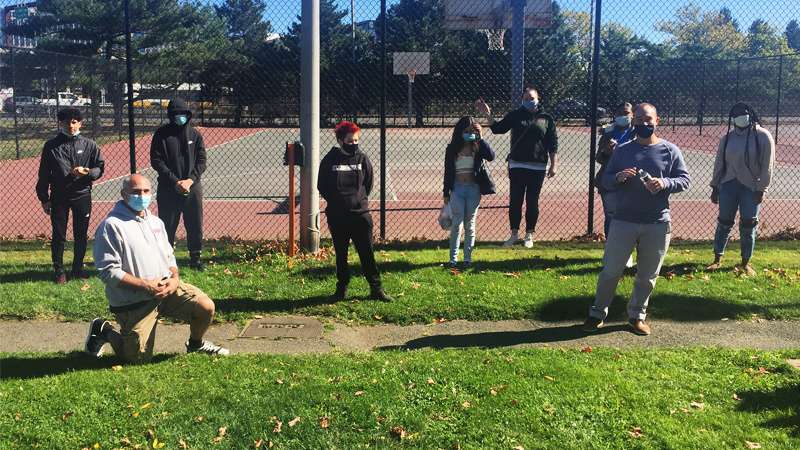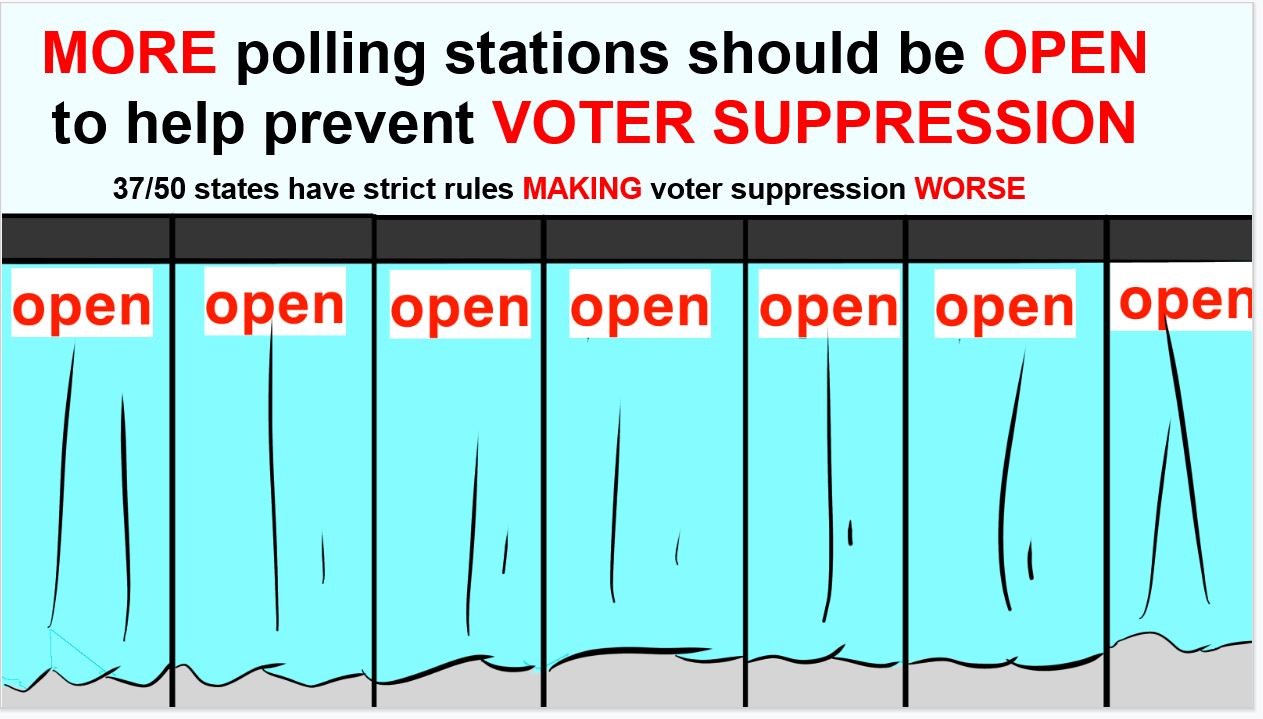
Cutting-Edge Learning during a Pandemic at Full Circle High School
Full Circle High School students and staff left the traditional course schedule behind in Fall 2020. Teachers introduced an incredible lineup of innovative, cross-curriculum, project-based learning courses to engage students. These classes were the early implementation of changes developed as part of a student-driven visioning process. For the last two years, Principal Margaret Green has worked with students and her staff to develop an innovative curriculum. This was made possible through a generous grant from the Barr Foundation, in a process supported by consultants at Springpoint. (See a snapshot of this process in this blog post.)
Next Wave Middle School and Full Circle High School (NWFC) play a special role in the Somerville Public School district. Classes are small, often with two teachers in the room. Counseling is part of the daily schedule and, like students throughout the district, students attend classes with specialists for art, music, physical education, and library. NWFC prides itself on its tight-knit community, therapeutic setting, and personalized approach. In the words of Full Circle High School student Denilson, “the teachers here don’t give up on you at all.” Another student, Isaiah, concurs, “there are two teachers in a room at all times. I can’t name a time that a [NW/FC] teacher gave up on me.”
Starting in Fall 2020, Full Circle High School students took a single academic class. Students learn curriculum material in multiple subject areas and apply that learning to complete their projects, all of which are focused on real-world issues. One of these classes was called Voting Rights. Students were asked to research and argue in favor of a policy change that ensures free and fair elections during a national emergency. This class taught English Language Arts and Social Studies curriculum requirements. Students researched the history of voting rights in America and then the impact of voting rights on the November 2020 election. They took into consideration safety protocols to protect citizens from COVID-19, like absentee voting, online voting, and social distancing at polling stations. Student Isaiah developed his interest in voting rights over the course of the class. He says, “voting was not a thing on my mind until three weeks into the class. I’m not voting yet, but these are things I will need to know soon.” The final project for students in Voting Rights was to write an argument and present a Floor Chart that a Congressperson could use to support a position on the floor of the United States House of Representatives.

Classes set out clear goals at the start of the semester. Melanie, who took Voting Rights, says this type of project-based learning is easy “because you start from the beginning of projects.” Full Circle High School student Noah took Dystopian Literature. He agreed that “we talked about what we would be doing from the beginning of class. I was never lost about what we would be doing.” Noah’s final project was a piece of his own creative writing, styled and inspired by current writers in the dystopian fiction genre. His assignment was to critique our world and how technology shapes our lives currently and how it will shape our future. Noah’s story described an exciting futuristic world where his young main character faced intrigue and betrayal at every turn.
Students in You Auto Know researched automobiles, then selected a consumer profile, and matched that consumer with the most appropriate car purchase. Students used spreadsheets to calculate purchase and ownership costs and wrote up their findings. They used new math skills in order to create spreadsheet formulas to understand the costs of purchasing versus leasing a car, long term costs of repair, maintenance, and fuel. Students even learned how cars work in order to support their decision-making process.
Plant Power asked students, “How can we harness the power of plants in our daily lives?” Students researched scientific concepts like thermal energy transfer, the Greenhouse Effect, photosynthesis, cellular respiration, the flow of energy through the food chain, and the carbon cycle. Their projects were to create a collection of products that included a view of the different systems of farming and role of agriculture in building community. Students learned through self-guided study, collaborative activities, labs, and direct instruction.
Student Showcases
Each student ended their classwork by presenting at their Student Showcase. The NWFC teachers piloted Student Showcases last year but they were not sure how they would go remotely but, in the words of Principal Margaret Green, "they have been fantastic. The showcases are an opportunity for students to share their learning and understanding through a presentation of their project to an authentic audience. It is also a time for them to receive feedback from the audience and reflect on what they learned."
Tim Dunphy, NWFC Instructional Coach, says the teaching staff and students “have taken this double challenge – remote learning and new, engaging courses based around learning experiences – and run with it with enthusiasm!” Student William says, “It was fun! Tim and Sarah [both teachers] made the class fun but we were working hard too!”
R. Ronen, Communications Specialist
